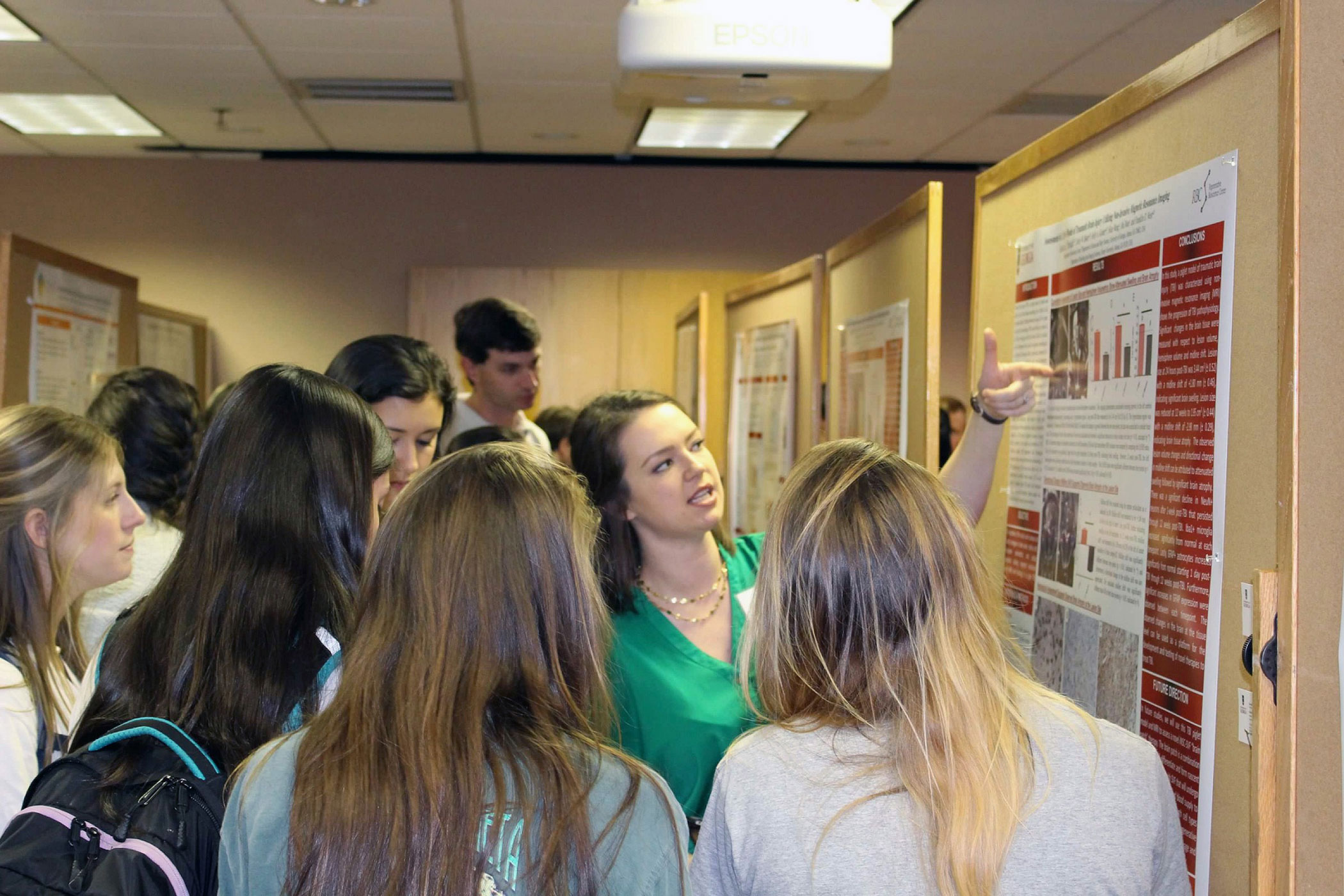Thirty-eight presentations on topics ranging from brain disease and stroke to stem cell regeneration and equine muscle damage were addressed at the annual Regenerative Bioscience Center’s Fellows symposium.
The symposium began in 2014 under the leadership of Franklin West, an associate professor in the College of Agricultural and Environmental Sciences, to give students an opportunity to share their research findings and network with peers across research disciplines.
“This year’s symposium is the culmination of a year marked by extremely knowledgeable and enthusiastic students,” said West. “I’m very confident that the future scientific enterprise is in really great hands.”
Puliyur MohanKumar, a professor in the College of Veterinary Medicine, opened the symposium with his story of living and sleeping on a dirt floor to becoming a professor and the founder of the Georgia Research Opportunities in Women’s Health (GROWH), a program designed to help engage young scientists with local communities for a lasting positive impact.
“All you have to do is work really hard and always believe that you alone have the choice to be someone better—no matter what the odds,” said MohanKumar.
Students who participated in the symposium as presenters were eligible for awards. A panel of six RBC faculty served as judges.
Awards for best oral presentation went to Maria Naskou, a graduate from the Peroni lab, for “Platelet Lysate as a Novel Serum Free Media Supplement for the Culture of Equine Bone Marrow Derived Mesenchymal Stem Cells” and to Meghan Logun, a graduate from the Karumbaiah lab, for “Small Molecule GAG-Antagonist Surfen Decreases Glioma Cell Infiltration In Vitro and Attenuates Tumor Growth in Rat Model of Glioma.” The awards for best poster presentation went to Madelaine Wendzik, a graduate from the West lab for “Characterization of a Piglet Model of Traumatic Brain Injury Utilizing Non-Invasive Magnetic Resonance Imaging and Histological Assessment” and to Adir Mohaban, an undergraduate from the Mortensen lab, for “Small Molecule-Stimulated MSC Adhesion to Enhance Atopic Dermatitis Therapy in Companion Animals.”


